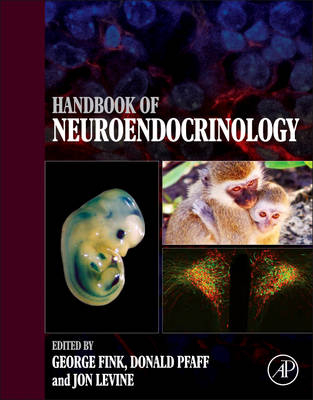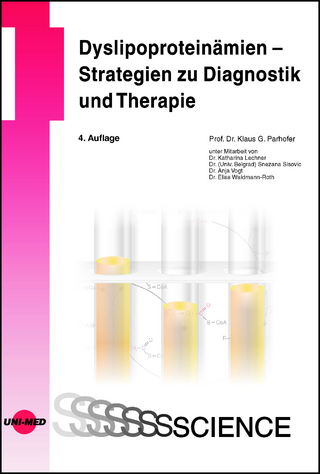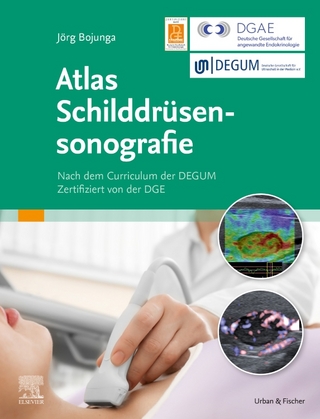
Handbook of Neuroendocrinology
Academic Press Inc (Verlag)
978-0-12-375097-6 (ISBN)
Neuroendocrinology, the discipline concerned with how the nervous system controls hormonal secretion and how hormones control the brain, is pivotal to physiology and medicine. Neuroendocrinology has disclosed and underpins fundamental physiological, molecular biological and genetic principles such as the regulation of gene transcription and translation, the mechanisms of chemical neurotransmission and intracellular and systemic feedback control systems. Reproduction, growth, stress, aggression, metabolism, birth, feeding and drinking and blood pressure are some of the bodily functions that are triggered and/or controlled by neuroendocrine systems. In turn, neuroendocrine dysfunction due to genetic or other deficits can lead, for example, to infertility, impotence, precocious or delayed puberty, defective or excessive growth, obesity and anorexia, Cushing’s Syndrome, hypertension or thyroid disorders. These as well as neuroendocrine tumors are some of the themes covered in the 36 chapters of the Handbook. Drafted by internationally acknowledged experts in the field, the Handbook chapters feature detailed up-to-date bibliographies as well as "how do we know?" call out sections that highlight the experimental or technical foundations for major concepts, principles, or methodological advances in each area. Aimed at senior undergraduate and graduate students, post-doctoral fellows and faculty in neuroscience, medicine, endocrinology, psychiatry, psychology and cognate disciplines, the Handbook of Neuroendocrinology satisfies an unmet need that will prove useful at the laboratory bench as well as in the office.
George Fink is a Neuroendocrinologist and Neuropharmacologist who has had a major interest in stress since the start of his career. He was recently appointed Vice President and Director of Research of the Pharmos Corporation in Israel and the United States, and is the former Director of the Medical Research Council's Brain Metabolism Unit and honorary professor in the University of Edinburgh in Scotland. Dr. Fink has published over 340 neuroendocrine papers and several authoritative books, and is past president of the European Neuroendocrine Association. Donald W. Pfaff heads the Laboratory of Neurobiology and Behavior at The Rockefeller University. He received his scientific training at Harvard College and MIT. He is a Member of the U.S. National Academy of Sciences and a Fellow of the American Academy of Arts and Sciences. Pfaff's laboratory focuses on steroid hormones and brain function, genes influencing neuronal functions, and generalized CNS arousal. He is the author or coauthor of over 10 books and more than 900 research publications.
Part I: Basic Principles of Neuroendocrinology An introduction to neuroendocrine systems Signaling in neuroendocrine systems Neuroendocrine Control Systems
Part II: Neural Regulation of Endocrine Systems Evolution of Neurohormones Neural control of the anterior lobe of the pituitary gland (pars distalis) Neural control of the posterior pituitary gland (neurohypophysis) Neural Control of the Intermediate Lobe of the Pituitary Gland (Pars Intermedia) and Proopiomelanocortin THE HYPOTHALAMIC PITUITARY ADRENAL AXIS AND NEUROENDOCRINE RESPONSES TO STRESS Neuroendocrine Control of Reproduction Lifetime Regulation of Growth-Hormone (GH) Secretion NEUROENDOCRINE REGULATION OF DEVELOPMENT, GROWTH AND METABOLISM – THYROID Circadian Rhythms in Neuroendocrine Systems Cardiovascular control – renin angiotensin- AV3V – PVN
Part III: Hormones, Brain Function and Behavior Neuroendocrine Regulation of Food Intake and Energy Homeostasis Neuropeptide regulation of stress-induced behavior: insights from the CRF/Urocortin family Neuroendocrine regulation of body water and electrolytes: Thirst and salt appetite Sexual differentiation of brain and behavior Corticosteroid actions on neurotransmission Neuroendocrine Mechanism of Puberty Sexual behaviors Stress and brain function Neuroendocrinology of Aggression Chronic Social Stress: Effects on Neuroendocrine Function Estrogen and Cognitive Aging in Women: The Critical Period Hypothesis Hormones, mood and affect Hormones and the aging brain
Part IV: Neuroendocrine Pathology KALLMANN SYNDROME AND OTHER CAUSES OF HYPOTHALAMIC HYPOGONADISM AND RELATED DEVELOPMENT DISORDERS Parental Behavior and the Perinatal Programming of Infant Development Disorders of the hypothalamic-pituitary- adrenocortical system Disorders of the Hypothalamic-Pituitary-Gonadal Axis Disorders of the hypothalamic-pituitary- thyroid system Neuroendocrine growth disorders – dwarfism – gigantism Neuroendocrine inherited or induced aromatase enzyme deficits Pituitary adenomas Neuroendocrine carcinomas Psychoneuroendocrinology
| Verlagsort | San Diego |
|---|---|
| Sprache | englisch |
| Maße | 216 x 276 mm |
| Gewicht | 2840 g |
| Themenwelt | Medizinische Fachgebiete ► Innere Medizin ► Endokrinologie |
| Medizin / Pharmazie ► Medizinische Fachgebiete ► Neurologie | |
| Naturwissenschaften ► Biologie ► Zoologie | |
| ISBN-10 | 0-12-375097-0 / 0123750970 |
| ISBN-13 | 978-0-12-375097-6 / 9780123750976 |
| Zustand | Neuware |
| Haben Sie eine Frage zum Produkt? |
aus dem Bereich


